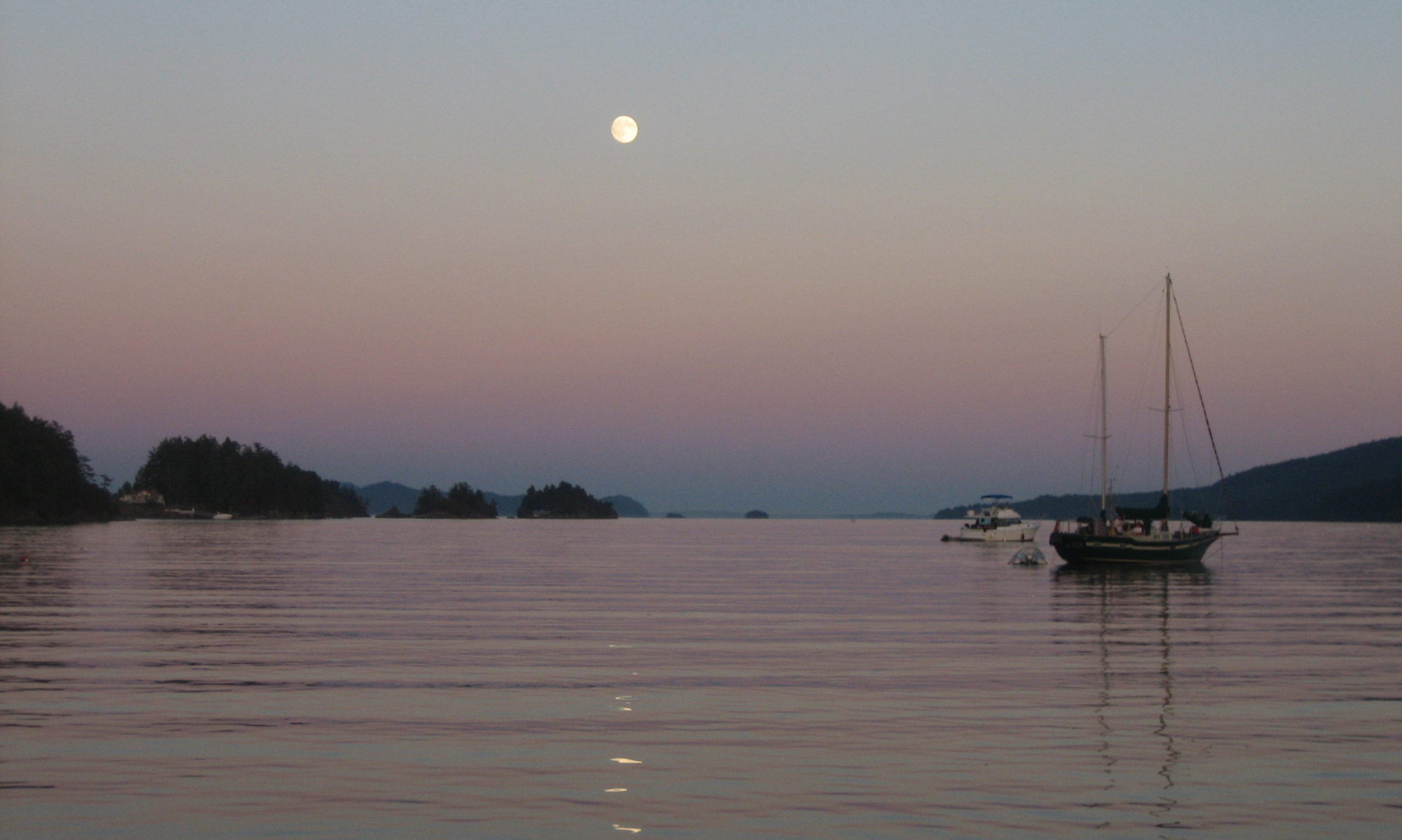There is just nothing more salty and nautical looking than a finely cared-for wooden boat. Big, small, power, sail, a wooden boat glowing with oil and varnish applied by a diligent and loving crew tugs at the salt in the blood of even the most lubberly spectator. Combined with blue skies, fair winds, and warm sun on the decks, there’s just nothing like a collection of wooden vessels for getting me into a nautical mood.
So I always enjoy going to the Port Townsend Wooden Boat Festival, and this year was a particularly fine time for it. I can’t remember better weather for it, and coming at the tail end of a summer that has, for the first time in a long time, seen us tied up in town rather than out sailing, it provided a badly needed shot of nautical for us. My wife and I sailed up to Port Hadlock (a much less crowded port during the Festival weekend!) last Friday to meet up with friends and family for a long weekend of visiting and show-going.
The schedule was jam-packed with seminars and lectures, but we skipped all those in favor of boat-viewing. There are very few bits of nautical knowledge that we figure we don’t need to know, but wooden boat maintenance is among them. We like to look, not touch. And with eighty-odd boats on display, there was a lot of looking to do.
There is also a lot of history involved. There was a time when the broad availability of wood as a construction material roughly coincided with the explosion of international travel and commerce. The oldest wooden boats we have today are relics of the last dregs of that explosion, and provide a fascinating window into the daily lives of our forebears before roads and cars, when the vast highways of water were the main arterial of the nation.
If that fact weren’t interesting enough, the tides of history have selected for survival those that were beautiful enough or interesting enough or owned by folks famous enough to draw favor. So it’s not unusual for mortals such as ourselves to find ourselves aboard Howard Hughes’ old sailboat, checking out frequent guest Hugh Hefner’s favorite berth, or standing around on the Duke’s old yacht, listening to the current owner read out entries from the logbook of glittering Hollywood parties held aboard in the 1930’s.
Some of the more prosaic vessels have also gained fame through either longevity or proximity. On a snowy day last November, my wife and I had watched from across the bay as the tug Elmore, built in 1890 (and re-built often since) had her bow stove in at her dock by a loose fishing vessel. Through the winter, we had kept track of the repairs with some interest, driving through the boatyard in Port Townsend and watching as the planking was stripped off and slowly replaced.
Going aboard to see the interior after such a catastrophe, then, was an eye-opener; her forepeak, previously packed with random gear and filling the same role as the average quarter-berth on a sailboat, had been entirely re-done with a new berth and lovely wooden lockers to complement the new planking. She looked as if she easily had another hundred and twenty years in her. I wondered what one of her original passengers in the late eighteen nineties would have thought to see her still chugging along today.
If boating generally provides a community, then wooden boat owners and crew have their own distinct neighborhood in it. It’s this close-knit group that keeps all these relics not only sailing, but thriving. Watching them chat and compare notes, it struck me how dedicated they are. In comparison, I feel like a weekend sailor. Many of them make their living on boats as well as making a hobby of them. If you enjoy a life on the water, nothing could be more appealing.
Of course, as I dreamily contemplated such a life, the stark reality that I wouldn’t even make a halfway competent deckhand was driven home as I helped catch the lines for the Elmore as she eased back into her regular berth on the last afternoon. I managed to stand in the wrong place, look the wrong direction, misunderstand instructions, and generally prove more hindrance than help at docking the 78′ tug with a touchy clutch.
This weekend, of course, is the Lake Union Boat’s Afloat show in Seattle. I plan to go to that as well, this time avoiding any attempts to help out, and hoping that the newer, slicker, less ingrained presenters there will prove a little less salty and will make me feel a little less lubberly in comparison!
